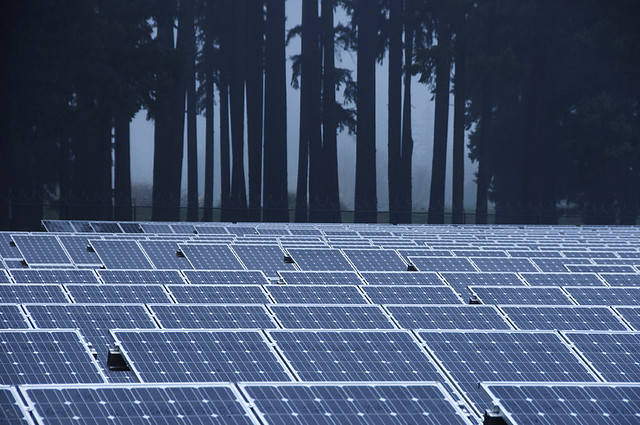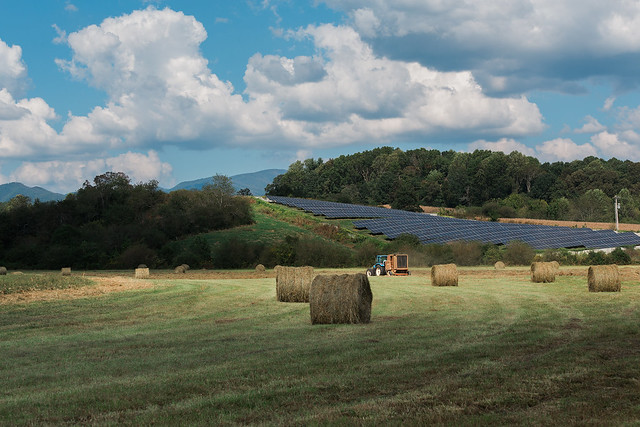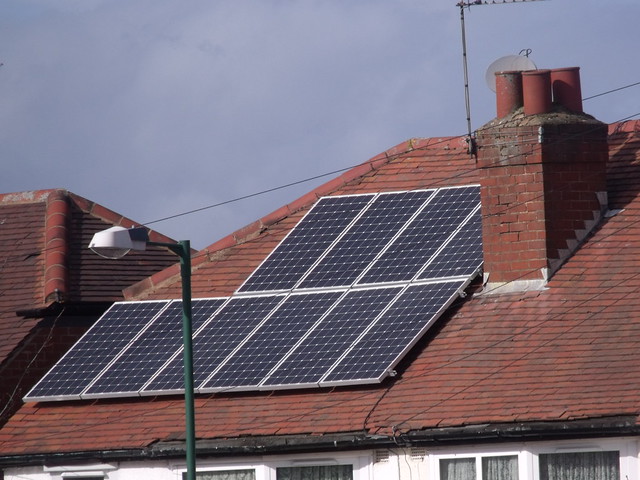
In late June, climate protesters in Germany stormed a mine site to demand its shutdown. Throughout Western Europe, concerns about the climate crisis have developed and activism is evolving on the issue. Students are taking time off from school to protest and demanding a quick transition to renewable energies, which has spurred a growing solar industry. But without the same cultural push and legal and economic barriers, the solar industry lags behind in the United States.
For the first time ever, renewable energy, primarily solar and wind, overtook coal in energy production in the United States in 2019. That change, however, signals a coal industry in decline rather than pro-active change. At least 50 coal plants have closed since Donald Trump became president. The Trump administration is no ally to solar and recently tacked on a 30 percent tariff on solar panel imports, which will raise costs and last four years. Financial experts believe the tariffs, which largely fall on European companies, will slow the industry’s growth.

Fortunately for potential solar owners, the federal government offers a 30 percent tax credit for purchasing solar panels. States have taken different positions on subsidizing and incentivizing solar by tax breaks, drawing the focus of environmental and fossil fuel lobbyists to statehouses.
In addition to tax incentives, solar energy companies, lobbyists, and environmental NGOs want states to codify Power Purchase Agreements (PPA), financial arrangements that offset costs to solar panel buyers that help the developer install the equipment for little-to-no cost. Those PPAs could push more residents to adopt solar.
Many states already have this sort of legislation in place. States with higher electric rates tend to invest more in solar where it’s seen as a better investment that will pay off whereas states with low electric tend to have lower solar rates.

Appalachia is home to one exceptional solar state—North Carolina. North Carolina ranked second nationally (California is first) for solar capacity in 2018. Its ranking may be due to the state government’s success at incentivizing solar.
In 2017, North Carolina passed a “Competitive Energy Solutions for NC” bill that included a PPA and a mandate for Duke Energy, its monopoly power company, to work with solar investors. These Duke Energy rebates are limited and offer different benefits depending on the buyer (i.e. nonprofit, individual, business). The rebates have already run out for 2019, so interested solar buyers must join a waitlist and hope to get on the 2020 rebate program.
North Carolina, however, could face a solar investment slump. In 2017, the 35 percent state tax incentive expired and was replaced by the Competitive Energy Solutions Bill. The replacement added jobs and other rebate programs for renewable energy but did not renew the state tax incentive.
West Virginia is particularly behind trend on renewable energy. The topic of solar did come up in West Virginia during the February 2019 legislative session, but HB 2589 (MOJO or the modern jobs act) did not pass. The proposed bill would have allowed more room on large-scale wind and solar investments. The bill especially focused on creating solar industry on former mine lands, easing energy access for solar buyers, and financially supporting some large-scale solar projects. Legislators have not given up and will likely bring these incentives up again in 2020.
There are a few up and coming solar projects in the works in West Virginia like the Hedgesville Library and Pike County Solar farm. Additionally, retraining unemployed miners has become a popular initiative and talking point for politicians and startups. One example of such an initiative is the Coalfield Development Corporation. Through its “Rewire Appalachia” non-profit, the corporation has promised to train miners to install solar panels in West Virginia. It is unclear, however, what the result of these training programs will be.
For Kentucky, solar has also been a slow-moving process, though not for lack of trying. Earlier this year, Toyota proposed a project to invest in making reclaimed mine areas into solar farms in Pike County. The statehouse passed a bill that allows energy companies to have more control over interactions and sales with solar owners. The bill allows energy companies to control a process known as net metering, which sells excess energy produced by solar panels back to energy companies. Now, energy companies will determine for themselves how much the solar is worth.
In Appalachian Virginia, there are some exciting projects in the works for solar. Federal funds are turning an old mining area into a solar farm: Sun Tribe Solar in Wise County received $500,000 in federal money from the Abandoned Mine Lands Fund. Many in the area are hoping this will bring some much-needed economic energy to the county. Additionally, residents can opt into a renewable energy program with Appalachian Power, which allows for more people who might not have the money to install panels to support green energy.

Solar doesn’t just challenge coal plants—it challenges how Americans think of energy infrastructure. Solar is often individualized and allows each owner to produce energy. Energy companies and rural electric co-ops will need to update their grids or invest in solar farms which will also cost money, but could pay off in the long run.
Contrary to the idea of stagnant coal country, rural Appalachia could be a prime location for economic investment in solar technology. Appalachia’s reclaimed mine areas could offer a great opportunity for large-scale solar projects like the Toyota investment in Kentucky or the reclaimed mine lands project in Wise County, Virginia. Furthermore, rural owners might find solar to be more convenient and self-sustaining compared to big electric companies. Solar has already seeped its way into the region and is currently on an upward trend.
Subscribe to The Patch, our newsletter, to stay up-to-date with new expatalachians articles and news from around Appalachia.
Alena Klimas is a writer and co-founder of expatalachians. Klimas is passionate about economic and community development in Appalachia. Now, she lives and works abroad in rural community development. To learn more about the expatalachians team, click here.

